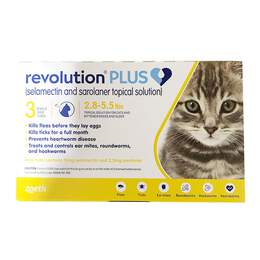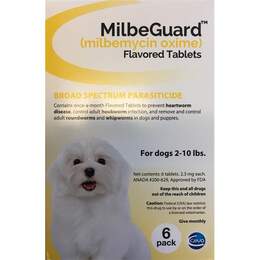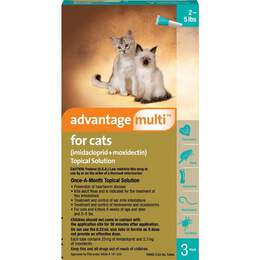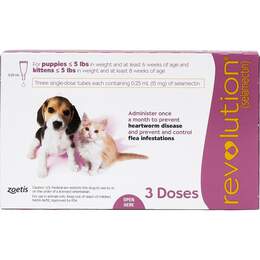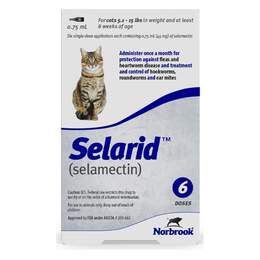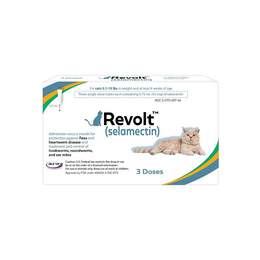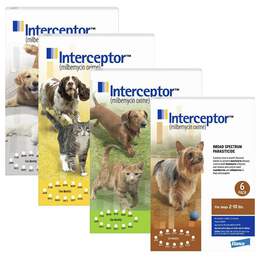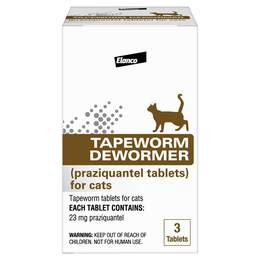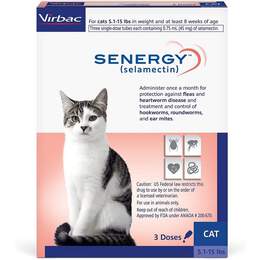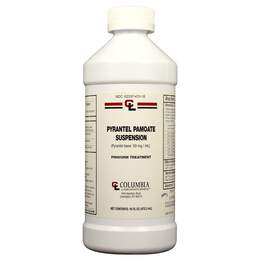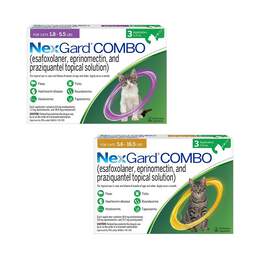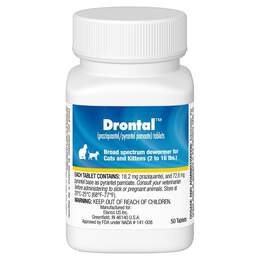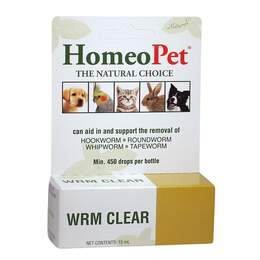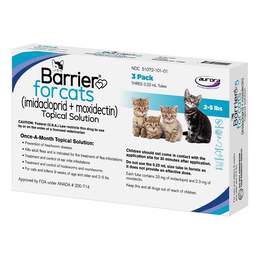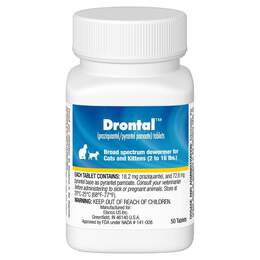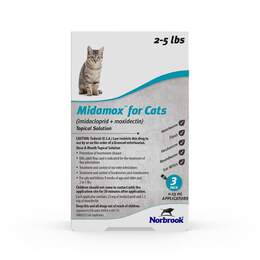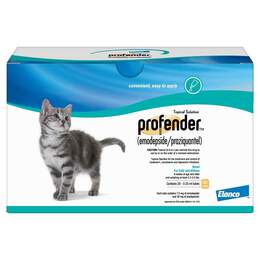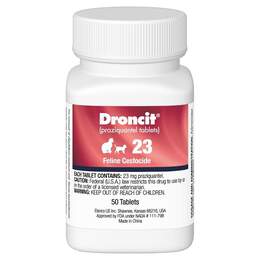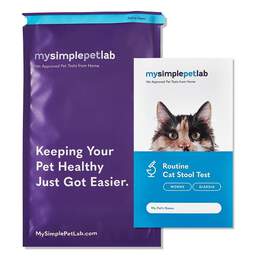Cat Dewormers
Cat and Kitten Dewormer Medicine
Cats are extremely susceptible to worms. They come into contact with infected feces or eggs, ingest infected rodent tissue, eat worm-infected fleas, or even get them as kittens from their mothers during nursing. Since cats love to groom themselves, it’s easy for them to ingest harmful parasites. Because of the ease of transmission, it is highly likely that your cat will be infected with worms at least once in their lifetime. Heartworms are one type of worm that might infect your cat. These worms take root in the heart, lungs, and blood vessels, and heartworm prevention is important for these harmful parasites. Your cat may come into contact with one or more of the following kinds of intestinal worms:
- Roundworms: The most common type of worms in cats, Ascarids infect your cat’s intestines. Kittens might be infected by roundworms through their mothers, or they may be infected at any age through contaminated feces or rodents. After your cat ingests the eggs, the eggs develop into adults inside the intestines, then lay eggs of their own. The cat passes the eggs through the feces, causing reinfection.
- Hookworms: Hookworms make their way into your cat in the larvae stage. These larvae might enter through the skin of your cat, or they could be ingested. They make their way to your cat’s lungs, then to their intestines. Their eggs exit through the stool, often leading to reinfestation.
- Tapeworms: This type of worm is found in infected rodents or fleas. Your cat ingests the eggs through one of these sources, and the worm matures inside the intestine. Your cat will then pass worm segments through their feces. Reinfection is, unfortunately, easily facilitated when the tapeworms infest your cat’s litterbox.
- Whipworms: While they are less common in the United States, your cat could also encounter whipworms. These parasites also infect the intestine.
What might indicate that my cat has worms?
Your cat might not have any symptoms, or they could suffer from:
- Vomiting
- Diarrhea
- Swollen abdomen
- Anemia
- Weight loss
- Poor coat
- Mucus flecks or blood in stool
- Mucous membrane paleness
- Dehydration
- Overall decline in health
- Death (in serious, untreated infections)
How will my cat’s veterinarian diagnose worms?
A fecal examination is in order if you suspect that your cat might be suffering from worms. This test can determine the type and severity of the worm infection. Once diagnosed, your veterinarian can work with you to decide on the best dewormer for your cat.
Which cat dewormer should I choose?
Your veterinarian can help you decide on the most effective deworming medication for your particular pet. However, it’s a good idea to do a little research so you can make an informed decision when it’s time to buy dewormer for your cat. Some of the top-recommended options are:
- Revolution and Revolution Plus: Revolution is a spot-on treatment with Selamectin. It prevents sarcoptic mange, ear mites, fleas, and heartworms. Revolution Plus is a broad-spectrum topical dewormer for cats with both Selamectin and Sarolaner. This powerful medication treats the same parasites as Revolution, but also combats ticks, hookworms, and roundworms. Both options are safe for kittens and cats.
- Interceptor: These flavored tablets use the active ingredient Milbemycin Oxime to fight against heartworms. They are also a useful deworming medicine for cats because they remove and control whipworms and roundworms, along with hookworms. This medication is safe for both kittens and cats.
- Advantage Multi: This topical cat dewormer contains Moxidectin and Imidacloprid. Another one of the best dewormers for kittens and cats, this medication prevents heartworms, and it treats and controls ear mites, fleas, roundworm, and hookworm.
- Drontal: This broad-spectrum cat and kitten dewormer combines Pyrantel Pamoate and Praziquantel. It is a hookworm, tapeworm, and roundworm dewormer for cats.
- Profender: With Praziquantel and Emodepside, this topical liquid dewormer for cats works against tapeworms and roundworms. It is a safe deworming medicine for kittens and cats.
- Heartgard: This chewable kitten and cat dewormer contains Ivermectin. It is an effective cat hookworm dewormer and heartworm preventative option.
- Droncit: Available as a tablet or an injectable cat and kitten dewormer, this medication uses Praziquantel to remove harmful tapeworm infections. This option is widely regarded as a preferred tapeworm dewormer for cats since it specifically targets one type of worm.
Allivet also carries other excellent options like Pyrantel Pamoate, HomeoPet Wrm Clear, MilbeGuard, Cestex, or Selarid. You might prefer a topical treatment, chewables, deworming pills, or an injection for your cat. Allivet has the best, most effective options for cat dewormer! If your household has dogs as well, consider dewormers for them as well.


